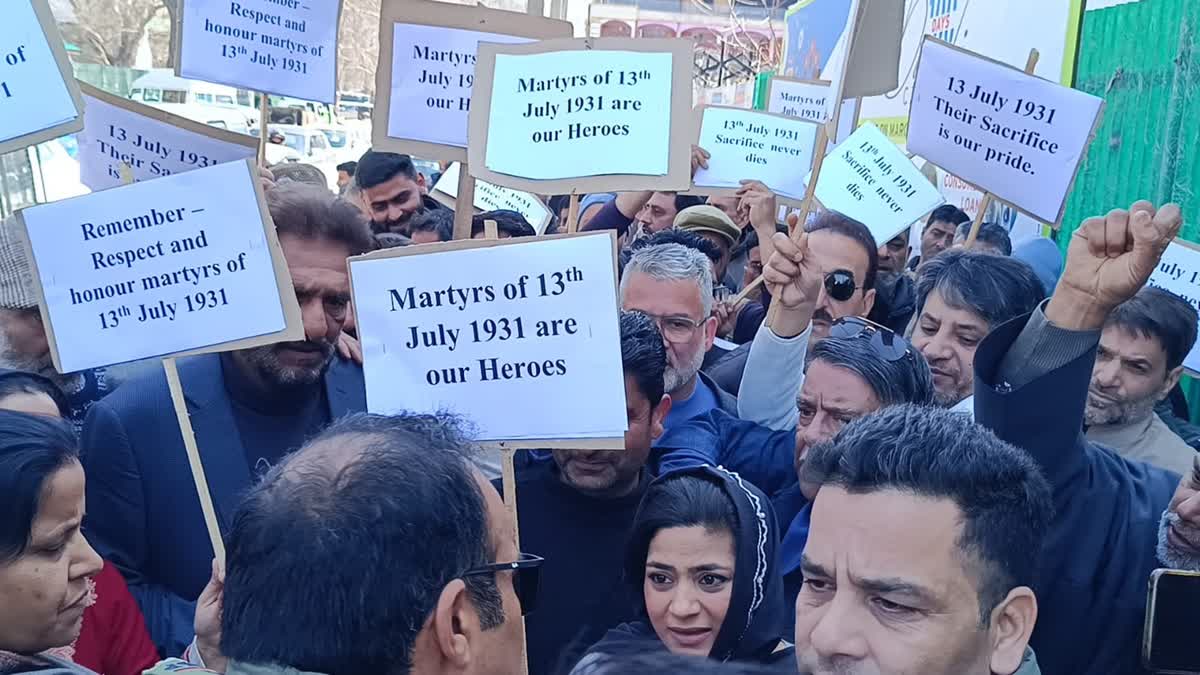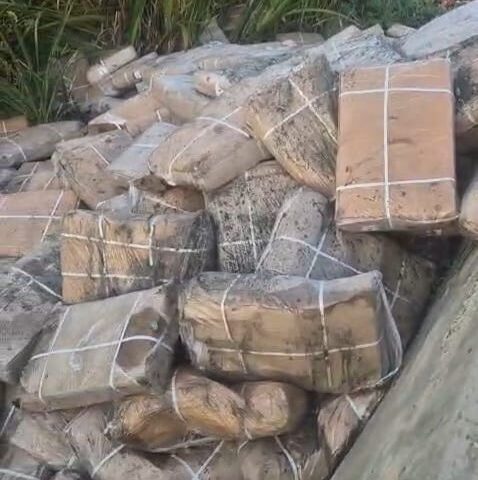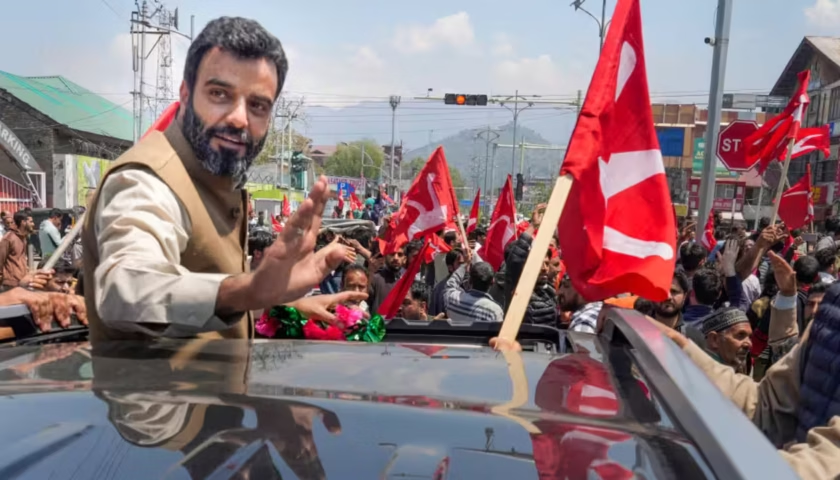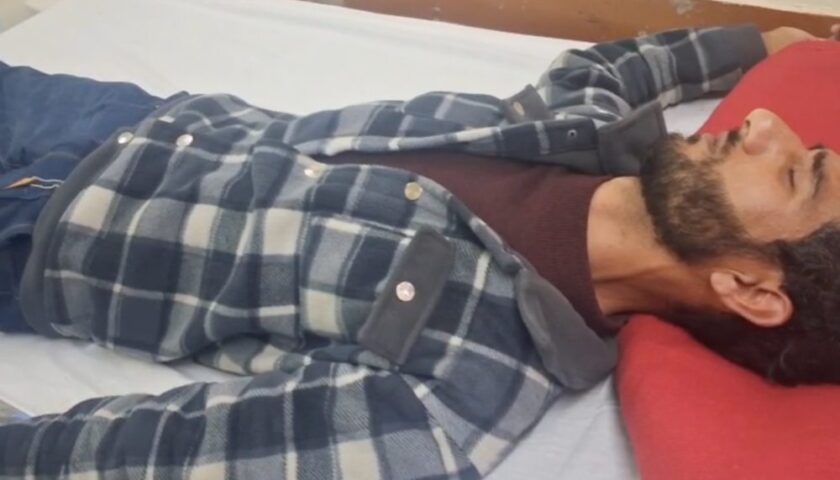PDP Rallies in Kashmir Over BJP Leader’s ‘Disrespectful’ Remarks Against 1931 Martyrs
Srinagar 06 March 2025: The Peoples’ Democratic Party (PDP) held protest demonstrations across several parts of Kashmir on Thursday in response to the “disrespectful” remarks made by BJP leader Sunil Sharma against the July 13, 1931 martyrs. The protests, led by senior PDP leader Iltija Mufti, demanded an apology from Sharma and accused the BJP of attempting to erase Jammu and Kashmir’s collective history and memory.
Protests in Srinagar
In Srinagar, the protest was spearheaded by Iltija Mufti, who emphasized the importance of honoring the martyrs of July 13, 1931. The protesters carried placards with slogans such as “Remember – Respect and honor martyrs of 13th July 1931,” “Martyrs of 13th July 1931 are our heroes,” and “13 July 1931: Their sacrifices is our pride.”
“Our martyrs fought 70 years ago against autocratic and oppressive rule,” Iltija Mufti said while speaking to reporters during the protest. “Their sacrifices galvanized the political movement and the political consciousness of the people of Jammu & Kashmir. We will not tolerate any disrespect against them,” she added.
Criticism of Sunil Sharma
Iltija Mufti criticized BJP leader and Leader of Opposition in the J&K Legislative Assembly, Sunil Sharma, for allegedly calling the July 13 martyrs “arsonists.” She labeled his remarks as “absolutely disgusting” and asserted that the BJP has consistently attempted to redraw Kashmir’s history. “We want BJP leader to apologize. Those who laid their lives on July 13, 1931, are our martyrs, and we will not allow their legacy to be tarnished,” she added.
Historical Significance of July 13, 1931
The controversy has reignited tensions over the historical significance of July 13, 1931, a day officially recognized in Jammu and Kashmir as a symbol of resistance against oppression. The day commemorates the 22 civilians who were killed in an uprising against Maharaja Hari Singh, a Hindu Dogra monarch, in Srinagar in 1931. These martyrs are remembered for their sacrifices in the struggle for rights and justice.
Protests in Pulwama
Similar protests were witnessed in south Kashmir’s Pulwama, where PDP members expressed outrage over the “derogatory” remarks used by Sunil Sharma. The protesters demanded an apology and emphasized the importance of honoring the martyrs.
PDP’s Stance
PDP leaders in Kashmir held street protests against the BJP, with Iltija Mufti carrying a placard that read: “Martyrs of 1931 are our heroes.” She stated, “Calling them (the martyrs) traitors is wrong. The BJP always attempts to erase our collective history, our collective memory. We will thwart all such attempts, and want BJP’s Sunil Sharma to apologize to the people. You cannot tell us who our heroes are.”
Support from Other Parties
Communist Party of India-Marxist (CPI-M) leader M.Y. Tarigami also condemned Sharma’s remarks, stating, “Unfortunate that senior colleagues made such remarks. Understanding history is crucial.” He questioned the BJP’s actions, referring to the 1846 Treaty of Amritsar and the separation of Ladakh from Jammu and Kashmir. “J&K was sold by the British, the same colonial power against which Indian freedom fighters like Bhagat Singh revolted. Why was Ladakh separated from J&K? That is what I ask the BJP,” Tarigami said.
Legacy of Sheikh Abdullah
Tarigami highlighted the contributions of NC’s Sheikh Abdullah, who “ensured a dignified life for even the poorest in Jammu or Kashmir.” He urged all parties to “rise above political differences and demand what rightfully belongs to us, the same State founded by the Dogra rulers, along with our job and land rights.”
Bottom-Line
The PDP’s protests against Sunil Sharma’s remarks underscore the deep-seated tensions and the importance of preserving the historical legacy of the 1931 martyrs. The controversy has reignited debates about the significance of July 13, 1931, and the need to honor the sacrifices made by those who fought against oppression and autocracy.




